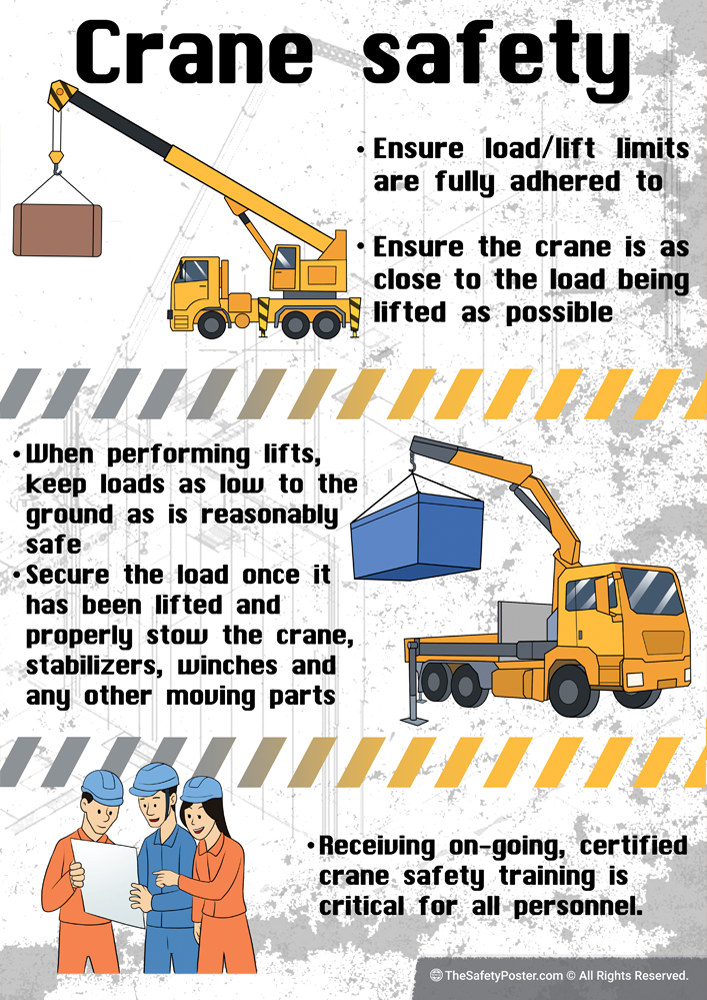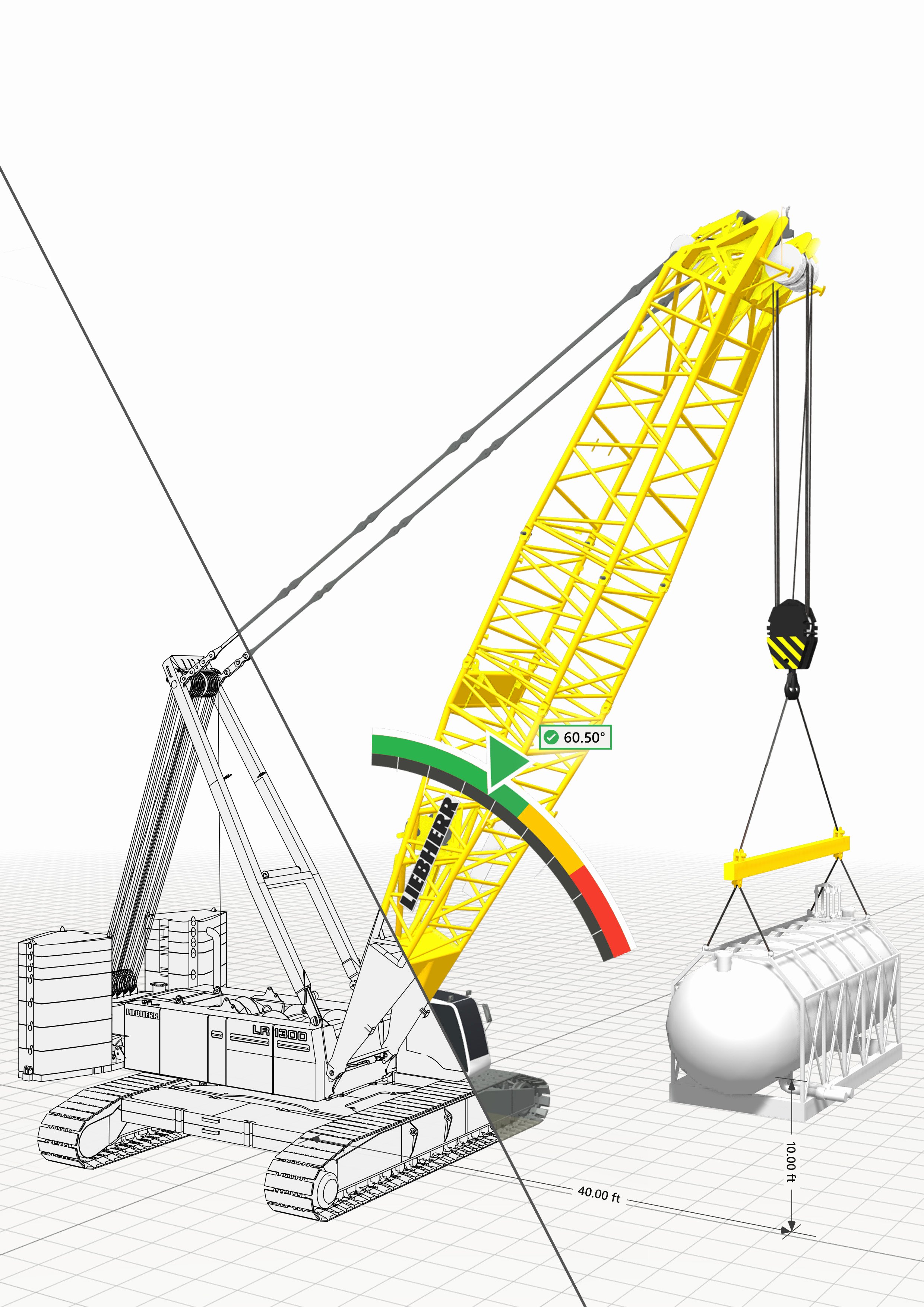
Cranes are either mobile or fixed, with fixed cranes generally being used in industrial settings or in complex or tall construction projects. There are many types of cranes and ensuring safety begins with using the correct crane. Here are some key safety measures when using crane equipment on a jobsite: Most importantly, one of the best things an employer can do is to be sure that everyone involved in the assembly, disassembly, rigging and operation of a crane is properly trained, qualified and/or certified to do the work correctly and with safely awareness for the type of loads and lifts that are required by the job. The OSHA Standard for Cranes and Derricks in Construction is expected to continue to save lives and prevent injuries. And according to OSHA, most deaths and injuries occur by electrocution, being crushed by parts of the equipment, being struck-by the equipment/load, and falls. Cranes are heavy and complicated pieces of equipment and there are many types of cranes for specific types of jobs. This page is a starting point for finding information about these devices, including elevators and conveyors, and their operation.While the Crane Safety Standard from OSHA came out a number of years ago, it’s always good to review and refresh the Standard for Crane Safety from OSHA. There are significant safety issues to be considered, both for the operators of the diverse "lifting" devices, and for workers in proximity to them. Much technology has been developed for these operations, including careful training and extensive workplace precautions. Moving large, heavy loads is crucial to today's manufacturing and construction industries. Subpart CC – Cranes and Derricks in Construction: Signal Person Qualification.Subpart CC – Cranes and Derricks in Construction: Qualified Rigger.Small Entity Compliance Guide for the Final Rule for Cranes and Derricks in Construction.Cranes and Derricks in Construction: Operator Certification.OSHA issued a final rule setting November 10, 2018, as the date for employers in the construction industries to comply with a requirement for crane operator certification.






 0 kommentar(er)
0 kommentar(er)
